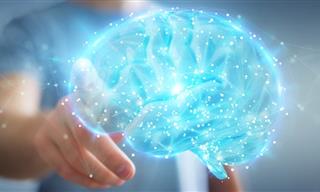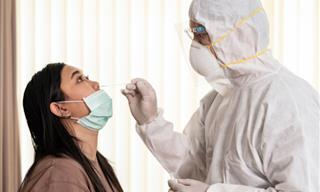As Dr. Anthony Volk from the University of Texas-San Antonio articulated very well in an interview with Healthline, “Testing makes the enemy visible.” This is very true, and research shows that countries that conduct the most testing are, on average, much better at controlling the spread of the virus and flattening the curve.
When it comes to the novel coronavirus, two main tests can be conducted - a diagnostic test for an active coronavirus infection, as well as an antibody test, which detects whether a person has had a Covid-19 infection in the past. When done correctly, one of these tests is highly accurate, whereas the other ones - less so. We distinguish between the available Covid-19 tests and their respective accuracy below.
Diagnostic Covid-19 Tests
Health professionals will conduct a diagnostic novel coronavirus test when a person exhibits symptoms of the disease or has been around a confirmed Covid-19 patient. There are two main types of diagnostic tests - the molecular real-time polymerase chain reaction (RT-PCR) test and the antigen test. Both of these tests are saliva swabs that are inserted deep into the nasopharyngeal cavity - the place where the back of your throat meets your nasal cavity.
Due to the sampling site, these tests can be quite uncomfortable, but oral or nasal swabs have been found to be less effective than the nasopharyngeal swabs due to a relatively lower quantity of the virus in the mouth and nose. Timing is also crucial when it comes to maximizing accuracy, doctors say, and ideally, a patient should be tested on the 8th day after exposure to the virus - the time when the virus multiplies the most and the fastest. Conducting a test too late or too early may lead to false-negative results.
The most widespread Covid-19 diagnostic test is the RT-PCR, a test that detects genetic material from the virus. It will take about 2-3 days to get the results from these tests, and when done correctly, PCR testing is nearly 100% accurate. Sometimes, however, false-positive cases occur when a person has had Covid-19 in the past.
Unlike the PCR, antigen testing targets a specific protein type on the surface of the virus, and so it is much quicker but less accurate. You will typically receive the results of an antigen test just a few hours after testing, and if positive, it’s a reliable result. However, a negative antigen test result is less accurate and can have a 20-30% false-negative chance, which explains why these tests are less common.
Antibody Test
Unlike diagnostic tests, antibody tests do not aim to detect active infection. This makes perfect sense if you understand what antibodies are - unique proteins that latch onto the pathogen (in our case, SARS-CoV-2) in the blood and tag it to make the pathogen visible to the immune system. Essentially, antibodies are a way for our bodies to recognize a ‘familiar’ illness and neutralize it much quicker the second or third time around.
It takes time for our body to produce antibodies, from days to weeks, according to the US FDA. Thus, an antibody test, which is a blood test, is able to detect if you have recovered from a Covid-19 infection and developed the antibodies necessary to fight the virus in the future. Theoretically, these tests should be able to target people who have developed immunity to the novel coronavirus and can safely go back to work while the rest of us stay in lockdown.
However, there are several problems with antibody tests, and a positive Covid-19 antibody test isn’t considered to be definitive proof that a person is immune to the virus. There are several reasons for that. Firstly, false-positive results are a common occurrence, and antibody tests can come back positive if you’ve developed an immunity to a different kind of coronavirus, not necessarily Covid-19.
Second, antibodies are just one of many different ways the immune system can detect and fight illness, and scientists can’t definitively say whether or not Covid-19 is a disease that’s only superseded by antibodies. Finally, the presence of antibodies doesn’t mean that you will be immune to a different strain of the virus or that you will not get sick again, so it doesn’t give you a green light to stop social distancing, wearing masks, or abiding by any Covid-19 related rules.
In summary, the most reliable Covid-19 test is considered to be the PCR diagnostic test, whereas antigen and antibody tests are considered less accurate and useful. That said, it's crucial to conduct the test properly to reach the best result and avoid getting tests from unauthorized sources or providers, and so you should avoid purchasing or conducting the test on your own.
Share this article with others if you found it interesting or useful!
 Go to BabaMail
Go to BabaMail


























